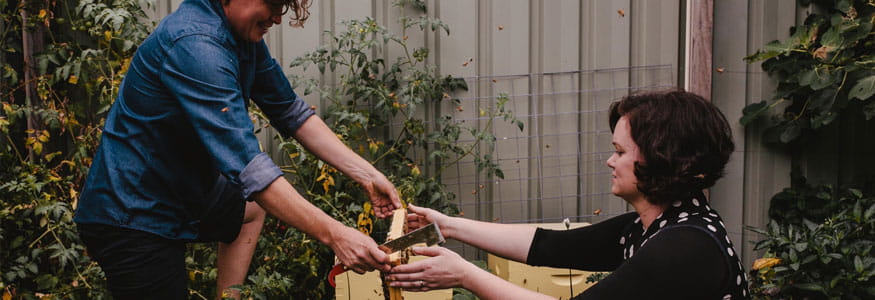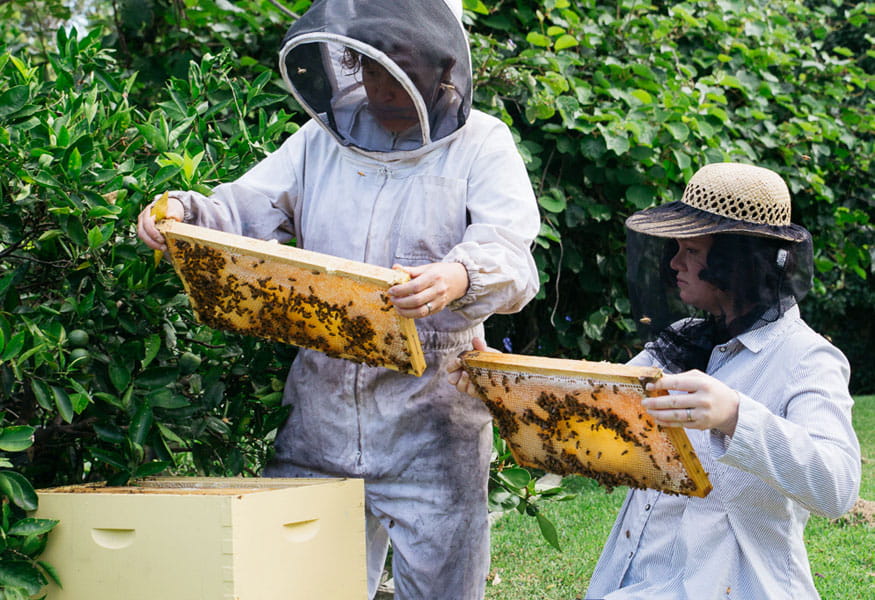Hive of hard workers produce yellow gold (2019)
WesTrac is working in partnership with Urban Hum to establish an apiary of 10 beehives at the WesTrac Tomago facility. This project is an example of WesTrac's commitment to sustainability.

WesTrac is working in partnership with Urban Hum to establish an apiary of 10 beehives at the WesTrac Tomago facility. This project is an example of WesTrac's commitment to sustainability.

Bees are fundamental to the Australian economy and society, contributing to pollination of horticulture, crop and pasture sectors. Due to the decline in bees throughout the world, the honey industry has highlighted that a greater focus is required to educate and engage other industries to promote pollinator health and protect the honey industry (1). Two people, Kelly and Anna from Urban Hum have taken on this responsibility to help educate and promote bee health and honey production. They have developed corporate sponsorship that has allowed WesTrac to implement managed beehives at the WesTrac Tomago facility. Anna and Kelly’s message is simple ‘producing honey and educating about the importance of bees’.
Kelly from Urban Hum is excited to be working on a project with WesTrac.
"We are very excited about our apiary sponsorship project with WesTrac and the potential this creates for important discourse around the issues facing honeybees. Education opportunities and the chance to reach a wider audience through knowledge sharing and hands-on learning mean that this project has far-reaching potential beyond honey production"
An apiary with 10 hives will be established with European honey bees on the open land to the south of WesTrac Tomago. The hives will be painted WesTrac yellow to reflect the similarities in WesTrac and bee values – hard working and producers of a fine product. Once established, Anna and Kelly will provide hive tours for WesTrac employees as a fun and educational team building exercise and provide educational sessions to employees on the importance of our working pollinators.
WesTrac's General Manager for Safety, Security & Risk at WesTrac, Gareth Hughes, is looking forward to the project.
“WesTrac are extremely excited to be partnering with Urban Hum on this fantastic initiative as part of our commitment to our community, environment and sustainability. We are very fortunate to have a wide expanse of native bushland to the south of our operations at Tomago, which we hope will be perfect for our WesTrac hives. I was amazed to learn that honeybees are incredibly important to human health as they pollinate over 60% of all of the food we eat. There is so much for us to learn and we are looking forward to the arrival of the bees and of course the first batch of honey and beeswax!”

The WesTrac honey project also has the potential to allow for an analysis of the pollen DNA from the honey. This analysis can identify key flora within a 3-5km radius that the bees are feeding on. Such data could be utilised to provide a snap shot of the natural environment surrounding WesTrac Tomago, i.e. the species of flora that are present. This valuable information could then be leveraged upon in the event of a natural disaster for regeneration of the environment or for targeted planting specific to supporting the ecology of bees.
WesTrac recognises that we all have a significant social responsibility to protect the natural environment for the benefit of current and future generations. We are committed to implementing sustainability projects, solutions and processes which apply best practice environmental management across all facets of our organisation. The honey project is a demonstration of WesTrac's commitment to sustainability and something we are proud of; worthy of communicating to our children, grandchildren, nieces or nephews, as it shows we care about their future.
We've recently written a follow-up article that provides an update on the WesTrac beehives, six months after they were installed. Click below to continue reading.